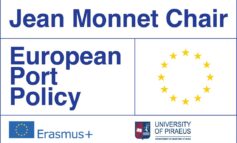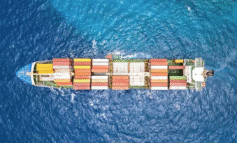What are the implications of institutional fragmentation in port governance?
PortEconomics members Gordon Wilmsmeier and Thanos Pallis, the founder of PortEconomics – along with Sebastian Leon Schorch and Diana Lisseth Trujillo – explore the issue in their recently published port study titled “Port Governance and the Implications of Institutional Fragmentation: Lessons from Colombia”
The research – published in open access format in Research in Transportation Business & Management – has gained insights from the dialogues on the optimal ways to reorganize the Colombian port sector, to compare the standing of a plurality of public and private actors and institutions vis-a-vis port governance (rules of the game, long-term strategic visions, intra-sectoral divisions).
The study starts by examining the significant shifts in Colombian port governance over the past three decades, particularly following the abolition of the State monopoly. This reform was part of the broader ‘first global wave’ of port reforms but with notable distinctions. Among these is the absence of a classic Port Authority, resulting in pronounced institutional fragmentation and various institutions that have assumed responsibility for different aspects of port governance.
It then contrasts the roles and perceptions of public and private actors, exploring their strategic visions, understanding of the regulatory framework, and the potential for intra-sectoral conflict. It also investigates whether the limited capacities of port managing entities have led to a mismatch between governance structures and strategic objectives, potentially hindering port development.
The focus is on (i) port policy formation, (ii) market and price regulation, and (iii) management of concessions, with the findings
- revealing that port managing entities’ low capacities have led to a structure-strategy mismatch undermining improvements in the respective ports.
- underscoring the value of a solid and effective port governing authority strengthened within the given institutional setting and provided the institutional capacities needed to lead and coordinate actors.
- supporting the broader argument against diminishing the role of traditional port governing authorities to that of port developing companies.
For those interested in understanding the implications of institutional fragmentation in port governance – or the historical context of Colombian ports – the study is freely available here: Wilmsmeier G., Pallis A.A., Schorch S.L. and Trujillo D.L. (2024). Port governance and the implications of institutional fragmentation: Lessons from Colombia. Research in Transportation Business and Management, 56, 101179.












